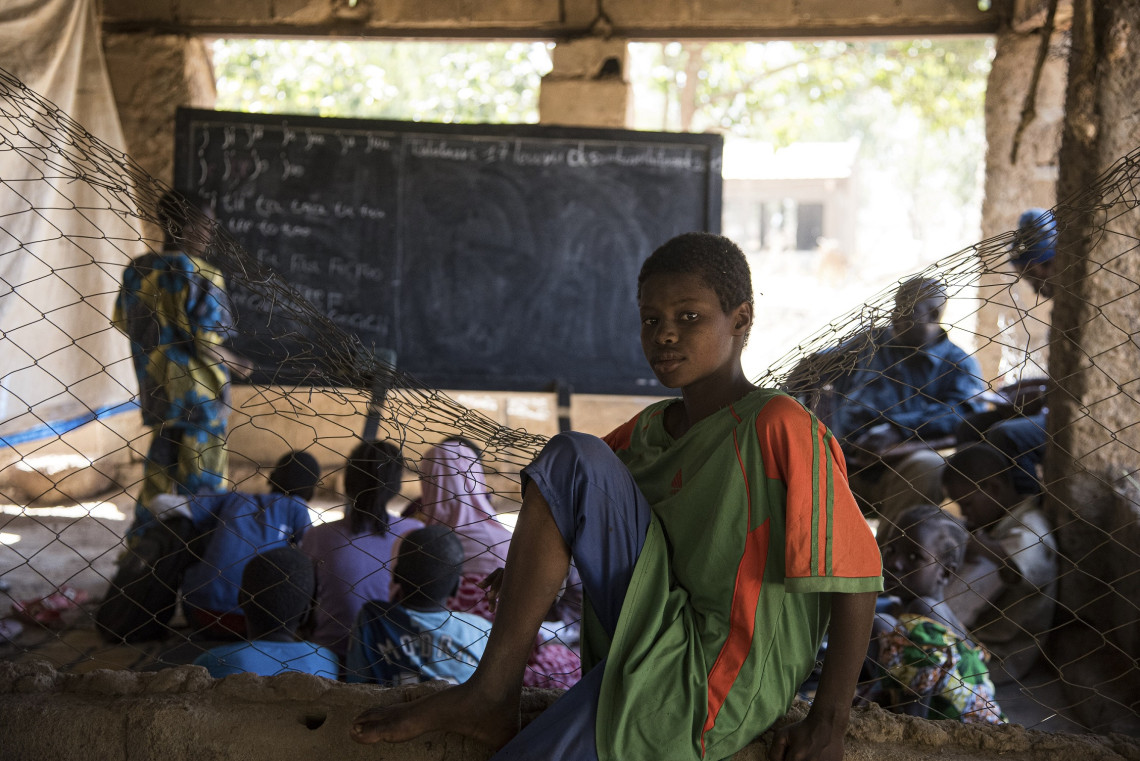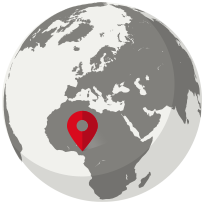
ICRC President Peter Maurer: Education for front-line communities must be a priority

On the occasion of the 4th International Conference on the Safe Schools Declaration, which took place from 25 to 27 October 2021 in Abuja, Nigeria, ICRC President Peter Maurer delivered the following pre-recorded message in the closing segment.
Excellencies,
I would like to thank Nigeria for hosting this important conference and for its commitment to the protection of education in armed conflicts. ICRC has a long-standing presence in Nigeria, with our action focused on supporting those most impacted by conflict and violence in different parts of the country, in particular in the North East.
We work closely with our partner, the Nigerian Red Cross Society, engaging together for sustainable and needs-based responses to the most vulnerable communities.
Six years have passed since the first international conference on Safe Schools in 2015.
The ICRC commends all 112 states that have joined the political commitment to protect students, teachers, schools, and universities from the most serious effects of conflict. While the widespread endorsement of the declaration is a tremendous achievement, more remains to be done.
At the ICRC, we have worked for many years in conflict zones to restore safety and security in schools – including directly at front lines. The ICRC does this in three main ways: by speaking to arms bearers; by delivering programmes that mitigate the physical and psychological effects of conflict, and, by working with authorities to create policy frameworks for school safety.
In its dialogue with militaries and other weapon bearers, the ICRC reminds all parties to the conflict of their obligations under international humanitarian law. For instance, in Ukraine, the ICRC guided the Ukrainian military and police to integrate IHL and other international norms, and international policing standards into their respective training and operations; it also helped government officials to implement IHL provisions, including respect to educational services.
Not only do behaviours of weapons bearers need to change, but also affected communities must receive the support they need. For instance, in South Sudan, the ICRC worked closely with the Ministry of Education to help children in remote areas affected by conflict sit the 2020/2021 national examinations.
Similarly, in Syria, the ICRC helps students who live in hard-to-reach areas to take their exams. We arranged accommodation for around 3000 students through rehabilitation of 15 schools, so they could take their official certificate exams. Practical measures like these can make all the difference.
The ICRC has developed a number of prevention and response measures which enhance the safety and security of school communities. In Colombia, students and teachers learn how to assess risks and how to behave during outbreaks of violence by conducting drills and establishing contingency plans.
These interventions strengthen the community's feeling of preparedness, self-protection and security. This is crucial because we know that not only direct attacks close schools, but far more frequently it is fear, panic and helplessness which paralyse students and teachers and damage children's futures.
Apart from influencing the behaviour of weapon bearers and direct support to communities, education also must be protected better at the systems level. For instance, in Brazil, the ICRC developed an online platform and app which allows teachers to report shootings in schools in real-time and request support.
This methodology to mitigate risks is now a public policy, which has reduced school closures by 46% in Rio despite an increase of 39% in shootings in the same areas.
We see three areas that will need our multilateral collaboration to achieve the key commitments of the Safe Schools declaration:
- Firstly, in order to ensure behaviour change on battlefields, we urge compliance with the IHL rules that protect education and that endorsing States respect the Safe Schools Guidelines. The ICRC offers its legal reading of the Guidelines and technical advice to all interested parties regarding how to best implement them in specific contexts.
- Secondly, the needs of front-line communities should be prioritized in humanitarian response. The ICRC aims to work with states and relevant organizations to facilitate access to education in hard to reach areas, leveraging our expertise in protection and assistance.
- Thirdly, there is a need to manage the effects of conflict on education systems. The ICRC stands ready to work with all interlocutors – including with ministries of education – to incorporate knowledge and expertise of working in situations of conflict and violence into relevant policies.
Thank you.
